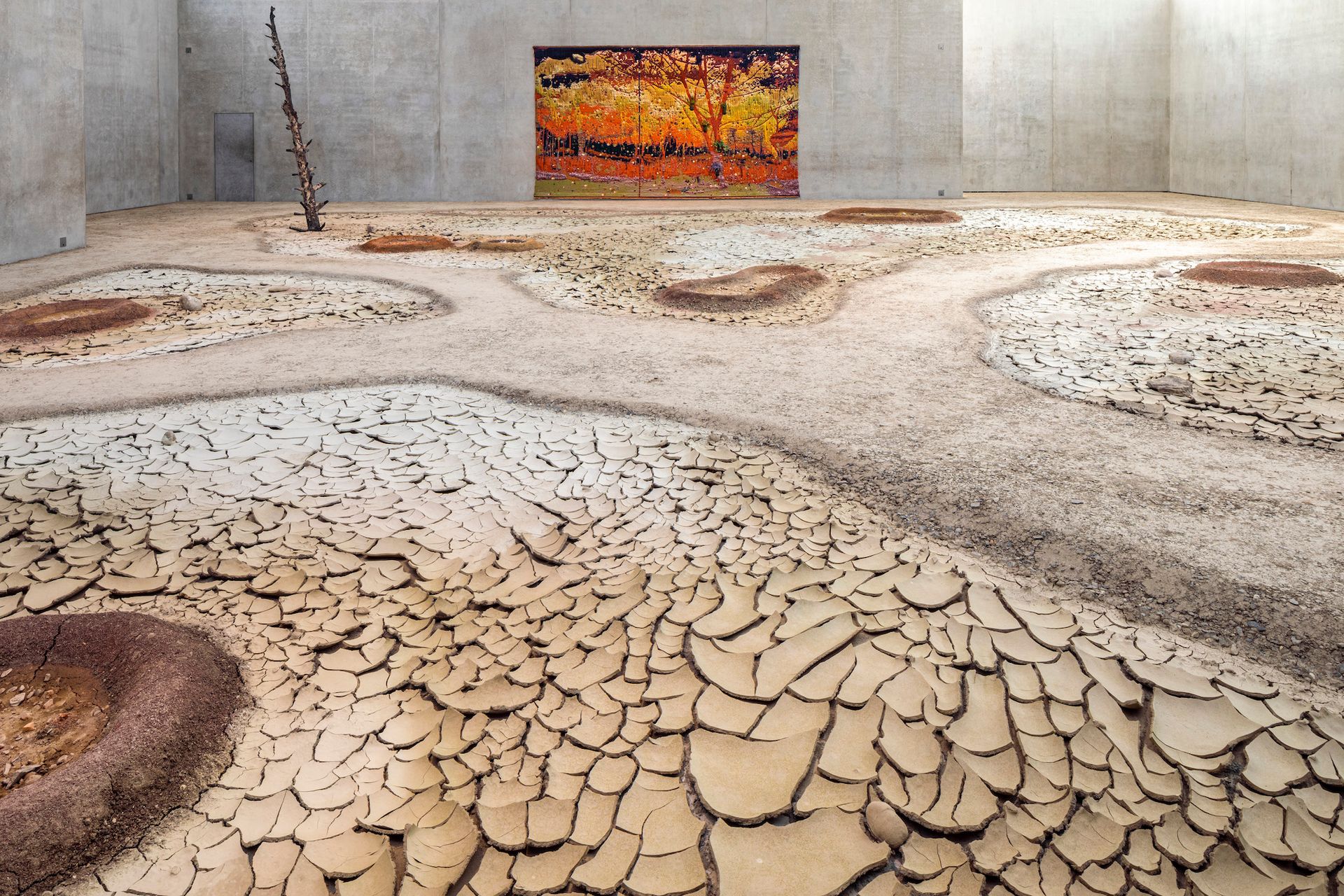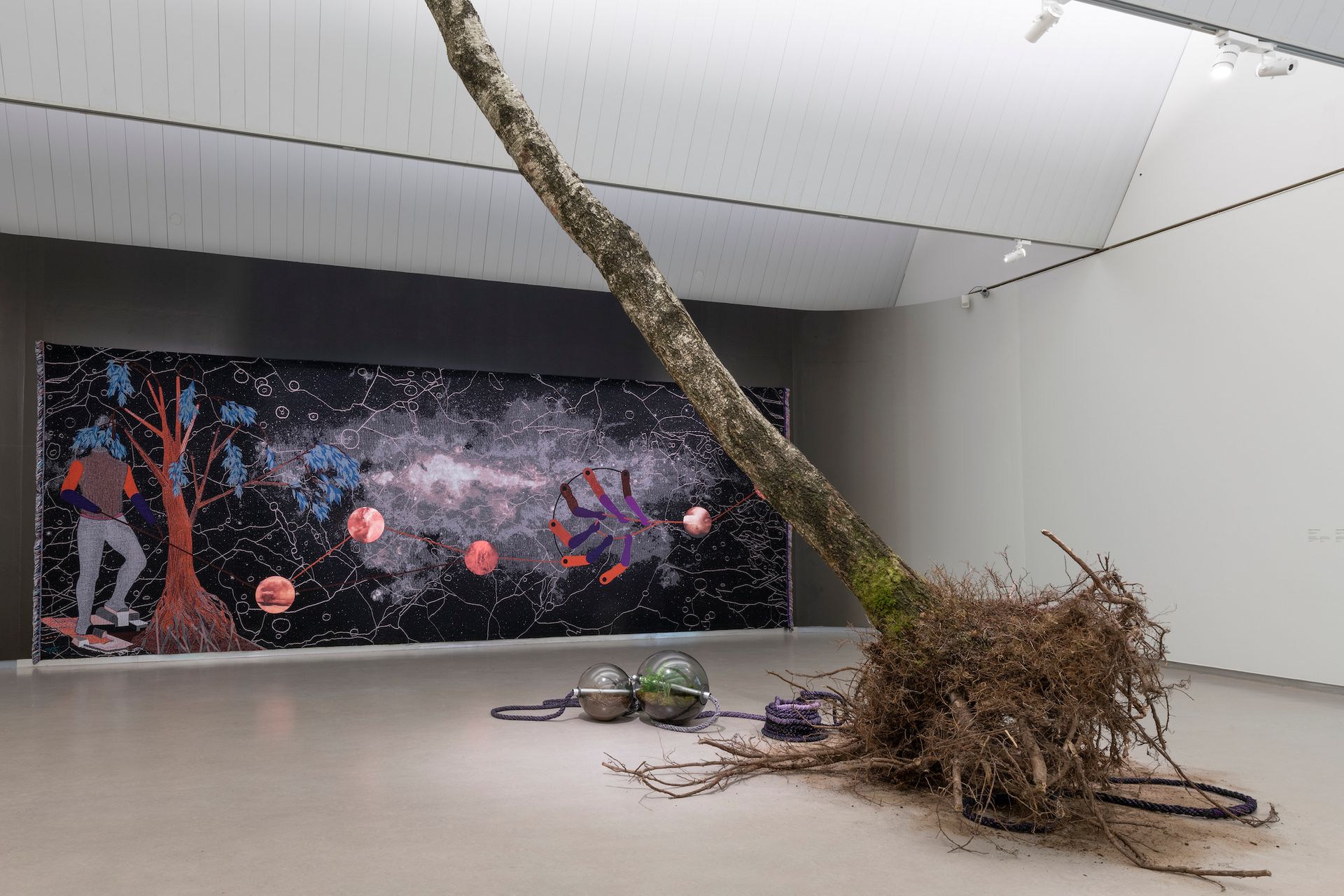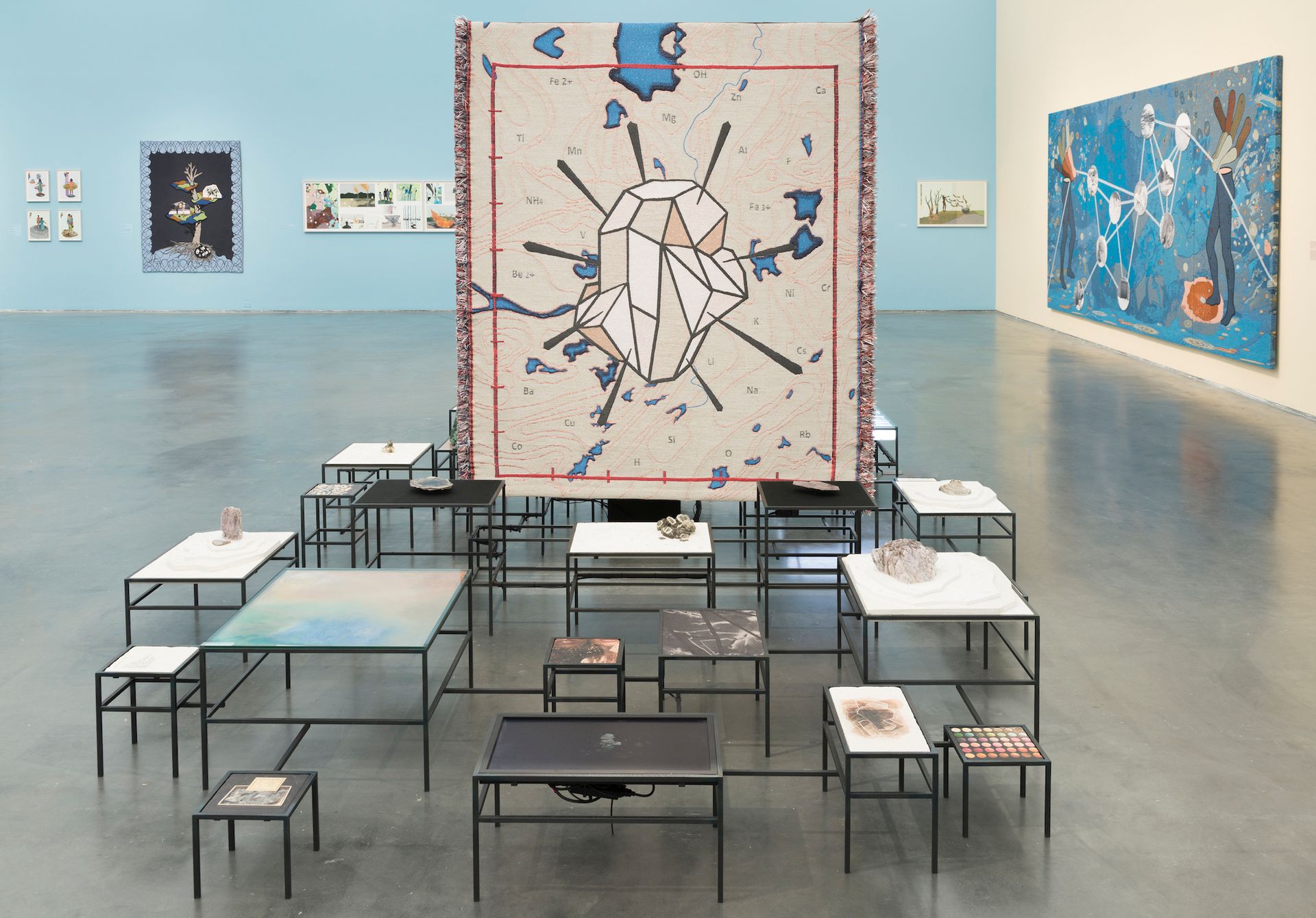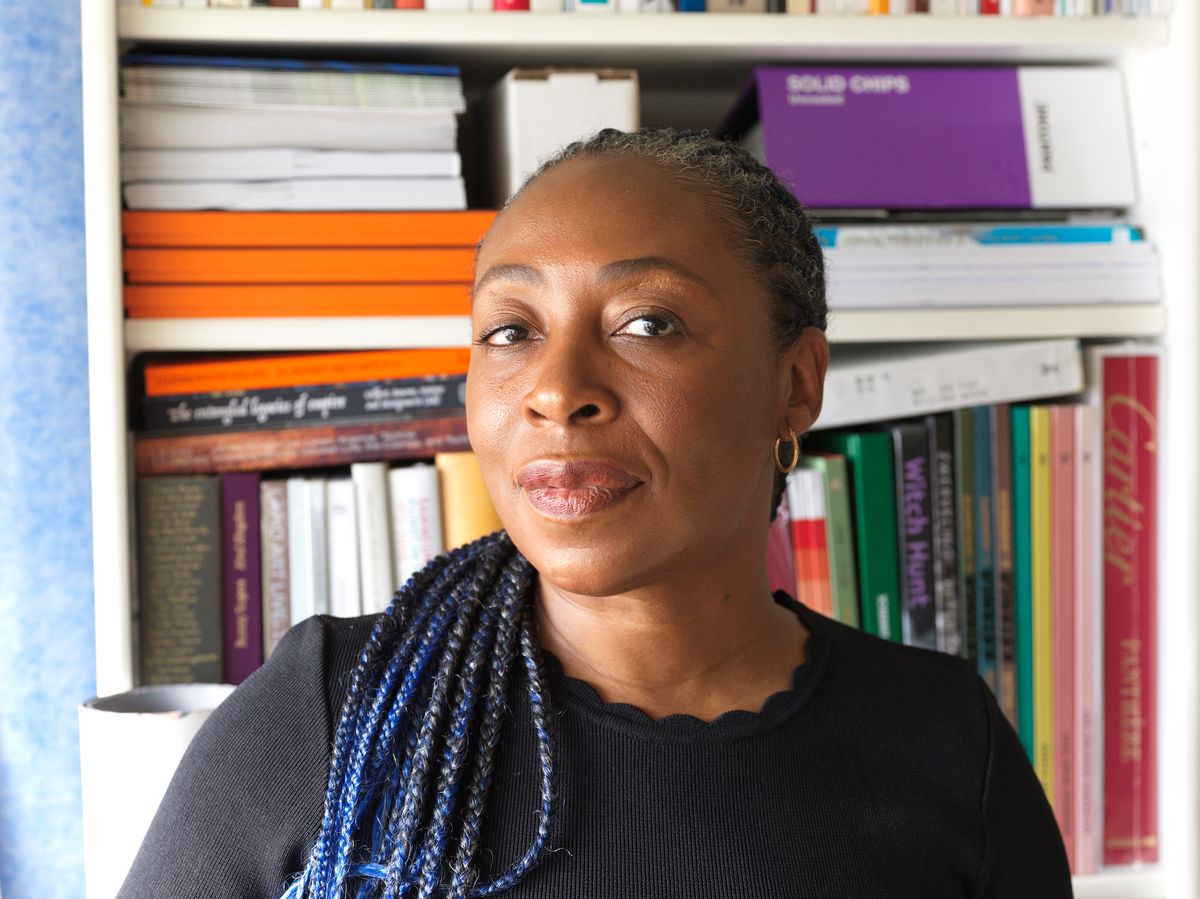The eighth laureate of the Nasher Prize, an award given by the Dallas-based Nasher Sculpture Center museum that comes with a $100,000 prize, is Otobong Nkanga, a Nigeria-born, Belgium-based artist known for her tapestries, sculptural installations and performances that articulate power dynamics within and across landscapes.
“Nkanga is broadening the concept of sculpture to be a sculpture about the anthropology of materials,” Carolyn Christov-Bakargiev, the director of Castello di Rivoli and a Nasher Prize juror, said at a press event announcing the newest laureate. “Her work has so many trajectories embedded in it, from Arte Povera to tropical architecture.”

Installation view of Otobong Nkanga at the Kunsthaus Bregenz, 2021 Photo: Markus Tretter
Nkanga—who was born in Kano, Nigeria, grew up between Nigeria and France and is now based in Antwerp—creates works that incorporate textiles, glass, found objects and more, while also using earth, plants, stones, minerals and water. She often tracks the exploitation and extraction of materials, while also imagining possible solutions to our present ecological predicaments. As the art historian and former Tate director Nicholas Serota said of Nkanga’s work in a video announcing the prize’s winner: “It’s not a history lesson, it’s not a geography lesson.”

Installation view of Botanischer Wahnsinn (Botanical Madness) at the Kröller-Müller Museum, 2022 Photo: Marjon Gemmeke
In addition to major solo exhibitions at the Castello di Rivoli (2021-22), Tate St Ives (2019-20), the Museum of Contemporary Art Chicago (2018) and the Beirut Art Center (2016), Nkanga has become a fixture of the global biennial circuit. Her work was included in the 2022 editions of the Busan Biennale in South Korea and the Triennial of Photography Hamburg in Germany, the 2019 editions of the Venice Biennale in Italy and the Sharjah Biennial in the United Arab Emirates, and the 2017 editions of Documenta in Greece and Manifesta in the Netherlands.
While announcing Nkanga’s selection as the latest Nasher Prize laureate, Nasher Sculpture Center director Jeremy Strick also revealed changes to the prize programme. Henceforth, the prize will be given out on a biannual basis, rather than every year. This, he said, will allow for more robust programming to be developed around each winner; in addition to $100,000, each laureate gets a solo exhibition at the Nasher. Now the museum will also be able to produce a full monographic publication to accompany the show.

Installation view of Otobong Nkanga: To Dig a Hole That Collapses Again at the Museum of Contemporary Art Chicago, 2018
Like Nkanga, past Nasher Prize laureates have tended to push the boundaries of what is considered sculpture while acknowledging that, in Strick’s words, “categories within contemporary art continue to meld”. Past winners are Senga Nengudi (2023), Nairy Baghramian (2022), Michael Rakowitz (2020-21), Isa Genzken (2019), Theaster Gates (2018), Pierre Huyghe (2017) and Doris Salcedo (2016).
As the prize shifts to a biannual format, Nkanga is technically its 2025 recipient; she will receive the Renzo Piano-designed award at a ceremony at the Nasher on 5 April 2025.


